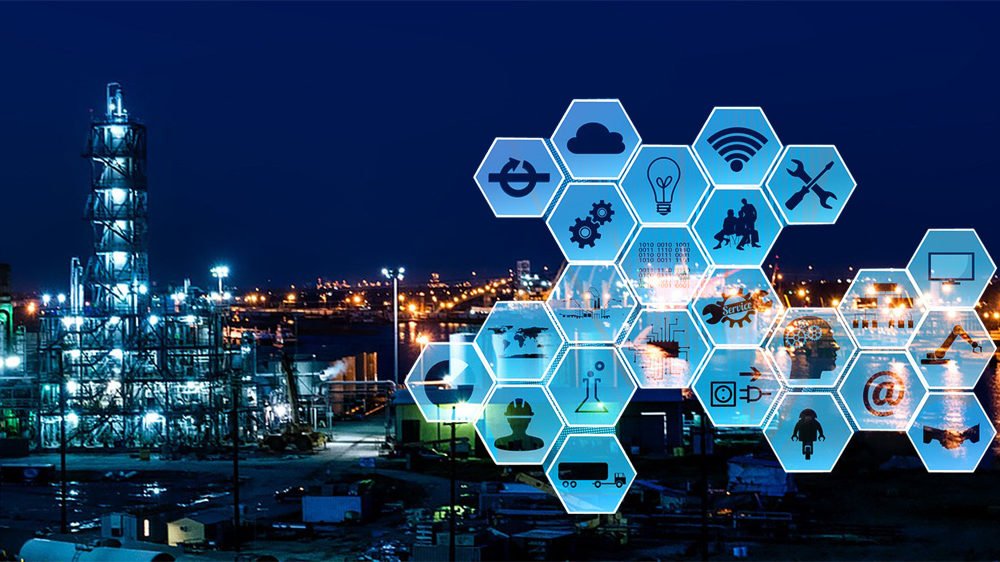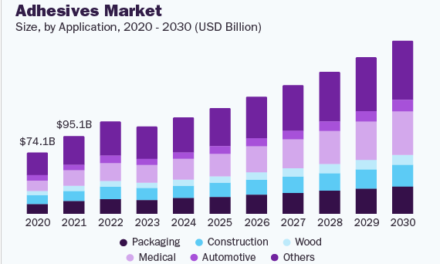Industrial chemicals are increasingly adapting to automation and Industry 4.0 to enhance efficiency, improve safety, optimize processes, and reduce environmental impacts. By integrating advanced technologies such as IoT, AI, machine learning, and robotics, the industrial chemicals sector is transforming traditional operations into intelligent, data-driven systems. Here’s how this adaptation is shaping the industry:
1. Process Optimization
- Real-Time Monitoring and Control:
- IoT-enabled sensors monitor chemical processes in real-time, providing data on temperature, pressure, flow rates, and chemical concentrations.
- Example: Smart reactors automatically adjust operating parameters to optimize reaction yields and minimize waste.
- Predictive Maintenance:
- AI and machine learning analyze equipment performance to predict failures before they occur, reducing downtime.
- Impact:
- Prolongs equipment life and minimizes production interruptions.
2. Enhanced Safety and Risk Management
- Automation of Hazardous Tasks:
- Robotics handle dangerous chemical mixing, transferring, and packaging operations, reducing human exposure to toxic substances.
- Digital Twins:
- Virtual models simulate chemical processes to test scenarios, identify risks, and improve plant safety without physical trials.
- AI-Powered Incident Response:
- AI systems detect anomalies and trigger safety protocols, such as shutting down reactors or alerting personnel to potential leaks.
3. Advanced Supply Chain Management
- End-to-End Visibility:
- IoT and blockchain technologies enable tracking of raw materials, chemicals, and finished products throughout the supply chain.
- Demand Forecasting:
- Machine learning algorithms predict demand fluctuations, ensuring optimal inventory levels and reducing stockouts or overproduction.
- Dynamic Logistics:
- AI-powered platforms optimize transportation routes for hazardous materials, improving safety and efficiency.
4. Customization and Batch Flexibility
- Modular Production Systems:
- Automation allows flexible, small-batch production to meet customer-specific requirements without extensive retooling.
- Impact:
- Reduces lead times and accommodates diverse product formulations.
- Innovative Mixing and Blending:
- Automated systems adjust chemical ratios and compositions dynamically based on real-time data.
5. Sustainability and Environmental Compliance
- Energy Optimization:
- AI algorithms reduce energy consumption by optimizing heat exchange, distillation, and other energy-intensive processes.
- Waste Reduction:
- Precision dosing and real-time monitoring reduce chemical waste, improving overall process efficiency.
- Carbon Footprint Management:
- IoT sensors monitor emissions, while AI models recommend adjustments to meet environmental regulations.
- Circular Economy Integration:
- Automation facilitates the recovery, recycling, and reuse of chemicals, supporting circular economy initiatives.
6. Quality Assurance and Control
- AI-Based Quality Monitoring:
- Machine vision systems inspect chemical products for consistency, ensuring compliance with quality standards.
- Data-Driven Process Adjustments:
- Advanced analytics enable immediate corrections to maintain product quality during production.
- Digital Traceability:
- Blockchain ensures traceability, helping manufacturers verify the origin and quality of raw materials.
7. Workforce Transformation
- Reskilling and Upskilling:
- The adoption of automation and innovative technologies requires training workers to operate and maintain advanced systems.
- Collaborative Robotics:
- Cobots (collaborative robots) work alongside human operators to enhance productivity and safety in chemical plants.
- Remote Operations:
- Digital control rooms enable remote monitoring and management of chemical facilities, reducing the need for on-site staff.
8. Research and Development (R&D)
- Accelerated Innovation:
- AI-driven simulations test new chemical formulations and processes, reducing the time and cost of R&D.
- Data-Driven Decision Making:
- Big data analytics provide insights into performance trends, enabling researchers to optimize processes and product formulations.
- Open Innovation Platforms:
- Cloud-based collaboration tools connect global teams, fostering innovation in chemical development.
9. Integration with Emerging Technologies
- Edge Computing:
- Processes data locally at chemical plants for faster decision-making without reliance on centralized servers.
- Augmented Reality (AR):
- AR tools assist technicians with maintenance tasks and training by overlaying real-time data on equipment.
- 5G Connectivity:
- High-speed, low-latency networks enhance communication between devices and systems in chemical plants.
10. Cost Efficiency
- Process Automation:
- Reduces manual labor costs and operational inefficiencies.
- Resource Optimization:
- Innovative systems optimize raw material use, cutting expenses and minimizing waste.
- Reduced Downtime:
- Predictive maintenance and real-time monitoring prevent costly production halts.
11. Challenges and Considerations
- High Initial Investment:
- Adopting automation and Industry 4.0 technologies requires significant capital investment.
- Cybersecurity Risks:
- Increased connectivity exposes systems to potential cyberattacks, necessitating robust security measures.
- Data Management:
- Handling large volumes of data from IoT devices and analytics platforms requires advanced infrastructure and expertise.
- Integration with Legacy Systems:
- Upgrading or integrating new technologies with existing equipment can be complex and costly.
12. Case Studies
- BASF:
- Deployed digital twins and AI for process optimization, achieving higher efficiency and sustainability goals.
- Dow Chemical:
- Integrated IoT sensors for real-time monitoring and predictive maintenance in production facilities.
- AkzoNobel:
- Leveraged robotics and AI to automate hazardous processes, improving safety and reducing costs.
Conclusion
Automation and Industry 4.0 are transforming the industrial chemicals sector by enabling more intelligent, safer, and more sustainable operations. Through advanced monitoring, real-time decision-making, and efficient resource utilization, these technologies are driving innovation, reducing environmental impact, and enhancing global competitiveness. As adoption grows, the integration of digital and automated solutions will be pivotal in shaping the future of the industry.
Hashtags
#Industry4Point0 #IndustrialRevolution4 #SmartManufacturing #DigitalTransformation #FutureOfIndustry #ChemicalAutomation #SmartChemicals #AutomatedProcesses #ChemicalsAndTech #AutomationInIndustry #TechInChemicals #AIInChemicals #IoTInIndustry #ChemicalInnovation #AdvancedManufacturing #SustainableIndustry #EcoFriendlyManufacturing #EnergyEfficientChemicals #GreenIndustrialProcesses #SustainableTechSolutions










